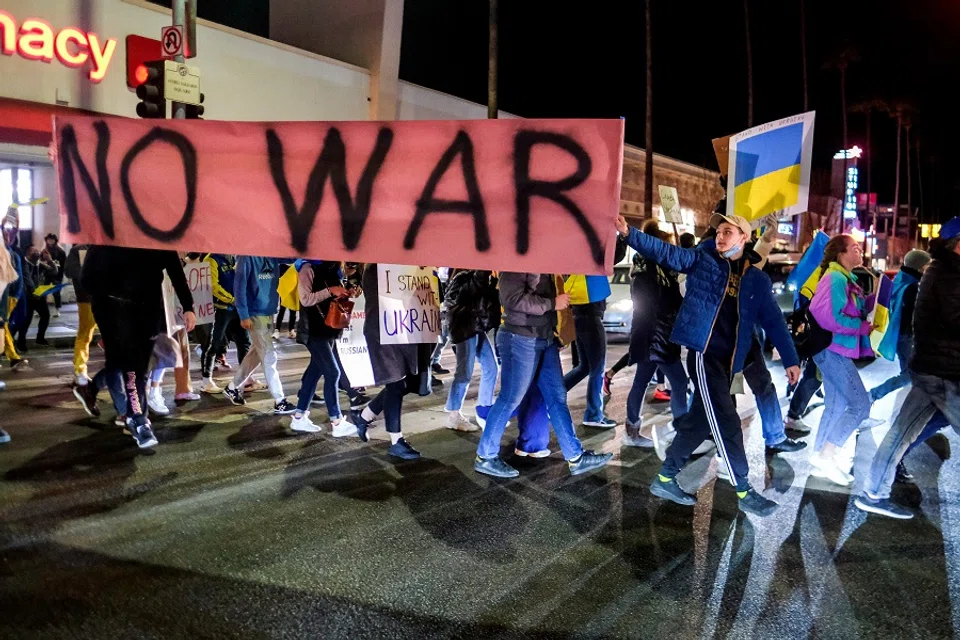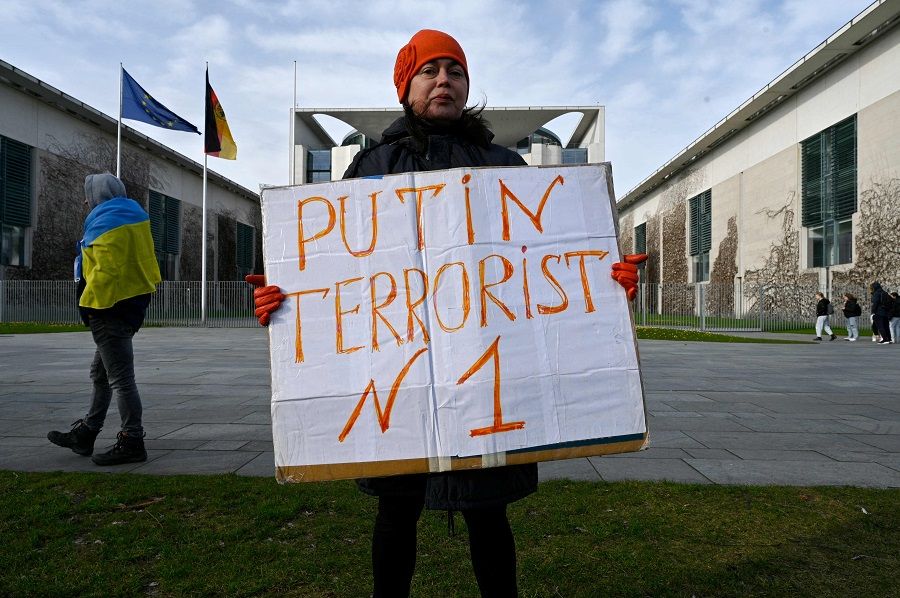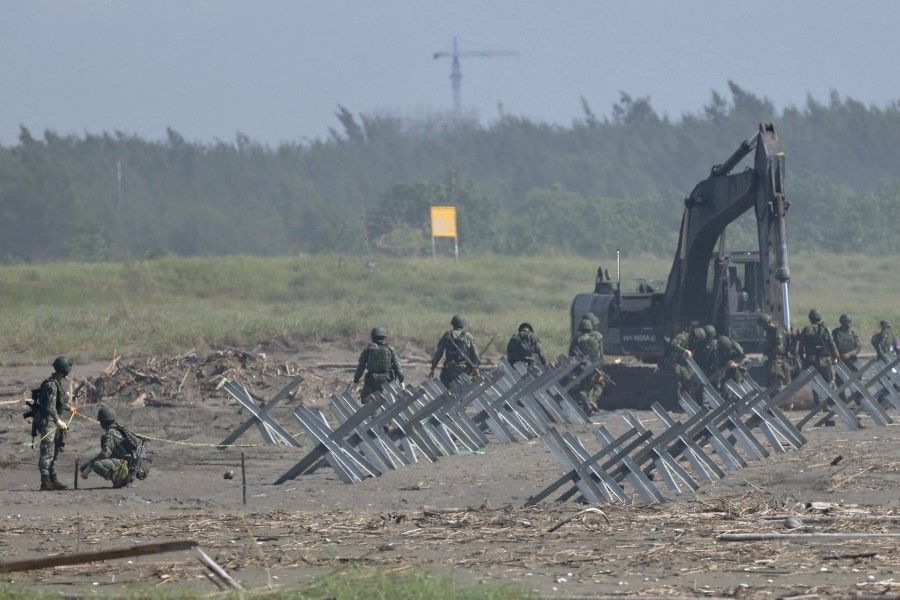Why Taiwan is not Ukraine

Many people, including some academics and government officials, have recently linked the Russia-Ukraine crisis to the situation in the Taiwan Strait. Some believe that the mainland may take advantage of the Ukraine crisis to wage war against Taiwan and achieve reunification in one fell swoop. Others claim that today's Ukraine is tomorrow's Taiwan, and that the US will abandon Taiwan.
These views are due to misconceptions about the differences between Ukraine and Taiwan, the US's global strategy, and China's domestic and foreign affairs.
Of course, it cannot be ruled out that some people who are using the Ukraine crisis to infer the Taiwan Strait situation have the intention of escalating tensions, creating anxiety, and highlighting China as a threat so as to stoke anti-mainland sentiment among the people in Taiwan.
Two different case studies in international politics
Even Taiwan leader Tsai Ing-wen agrees that Taiwan and Ukraine are fundamentally different in terms of geostrategy, geographical environment, and their importance in global supply chains.
Although Russia and Ukraine were part of the former Soviet Union, they became fully independent following the dissolution of the USSR, and one is not subordinate to the other. The international community including the United Nations also recognises them as two independent and sovereign states. While Russia may have a different view on this, it does not change this fundamental fact.
While Russia-Ukraine relations are considered international relations, cross-strait relations are unique.

In the case of mainland China and Taiwan, the two sides of the Taiwan Strait are not two countries with independent sovereignty, but one country and two regions with overlapping sovereignty.
Although the two sides of the Taiwan Strait have been divided for more than 70 years, and Taiwan has democratised and it identifies less with the mainland, both sides have not cut off their ties and have certainly not formed two sovereign and independent states which are widely recognised by the international community.
While Russia-Ukraine relations are considered international relations, cross-strait relations are unique. They are currently in a fragmented state and the two sides will not be reunified immediately, but neither will Taiwan be able to gain de jure independence.
Essentially, the conflict between both sides of the Taiwan Strait is caused by the fact that the Chinese civil war never really ended.
Taiwan is more strategically important to the US
Some people worry for the US that if a war between Russia and Ukraine and a war in the Taiwan Strait break out at the same time, will the US be able to cope with a two-front war? This concern is unnecessary, as the Biden administration has so far emphasised that the US will not become directly involved militarily in the Russia-Ukraine crisis.
...the US's handling of the Ukraine crisis does not signal how it will handle a crisis in the Taiwan Strait, and it is unlikely to abandon Taiwan.

The US's sanctions on Russia are limited to the trade, finance and energy sectors, including the recently announced prohibition of new investments, trade and financing in the Donetsk People's Republic or the Luhansk People's Republic regions of eastern Ukraine by a US person.
Undoubtedly, the US will avoid fighting on both fronts if war breaks out at the same time between Russia and Ukraine and in the Taiwan Strait. This is simply because the US does not deem Ukraine important enough to protect and risk starting a US-Russia war.
The US government regards China as the greatest current and future threat to US security. Hence, the US's handling of the Ukraine crisis does not signal how it will handle a crisis in the Taiwan Strait, and it is unlikely to abandon Taiwan.

In recent years, some US academics and former officials have called for the government to improve US-Russia relations so that it may focus its efforts on dealing with China. Looking at the US's current global strategy, Russia is not as important as China. And amid intense China-US competition, Taiwan is far more strategically important than Ukraine to the US.
China-US relations and cross-strait relations have worsened at the same time, and the crisis in the Taiwan Strait will always be there, but war is not imminent.
Beijing's stance on Taiwan remains unchanged
Currently, China's main goal is domestic growth and not a rushed reunification. The Chinese government's stance on the Taiwan Strait has been consistent for a long time and will not change because of the Russia-Ukraine conflict. Similarly, China is handling cross-strait relations in its own way, and will not seize the chance to impose an armed reunification with Taiwan because of a conflict between the US and Russia.
Beijing's approach towards Taiwan continues to be the pursuit of peaceful reunification, expanding cross-strait exchanges, and winning over the people of Taiwan, and to only take non-peaceful action as the last resort. Furthermore, Beijing feels that both time and power are on its side, with no domestic or external pressures for reunification in the short term.
Mainland China will not be the instigator if war breaks out in the Taiwan Strait.

Mainland China will not be the instigator if war breaks out in the Taiwan Strait. Some US academics argue that the US government should drop its policy of "strategic ambiguity" on the Taiwan Strait and switch to "strategic clarity". However, that is an argument that serves no purpose. If war breaks out in the Taiwan Strait, the People's Liberation Army (PLA) would have already taken into account the intervention by US troops, and would not be affected by the US's strategic ambiguity or clarity.
In other words, once the PLA decides to attack Taiwan, no external force would be able to shake or resist it. Nevertheless, most people - including those on both sides of the Taiwan Strait and in the US - would not want war in the Taiwan Strait.
The Ukraine conflict has sounded a warning for cross-strait relations: peace is valuable and war is dangerous. For the governments on either side of the Taiwan Strait, the biggest challenge is to restart exchanges to avoid any miscalculations. Hopefully, the people on both sides of the Taiwan Strait will resolve their differences with wisdom, and stay far away from war.
Related: Can China benefit as a bystander in the Russia-Ukraine crisis? | Russia-Ukraine crisis: Can Russian aggression bring back the former glory of the Soviet Union? | Who dictates war and peace in the Taiwan Strait? | Does Beijing benefit from US-Russia confrontation over Ukraine? | Can Biden 'set up' the US and Russia against China? | Has the US shifted its position on Taiwan, again?
